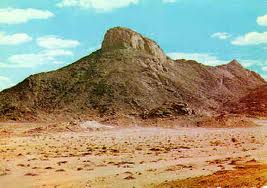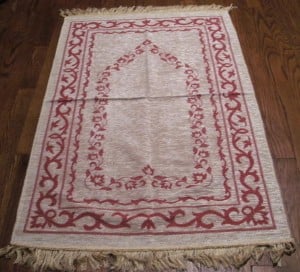Statesman. Terrorist. Noble. Blood-thirsty. Warrior. Warlord. Pedophile. Ideal husband. Monster. Exemplar. Prophet. False prophet. Messenger of God. Harbinger of doom. Epileptic. Visionary. Illiterate. Gentile.
I’ve heard all of these attributes and more for the man history calls, Muhammad. Like most things, history is colored by the observer. If you aren’t a fan of Islam, you may be less than gracious with your description of Muhammad. On the other hand, if you are a Muslim, you more than likely hold him in the highest regard. Despite all of this, one immutable fact remains: he was a man.
Let’s start from there, where we can all agree…
There are a few historical sources for Muhammad’s life, those including but not limited to: The Qur’an itself, various biographies (most notably that of Ibn Ishaq) including Muslim and non-Muslim writers, and the hadiths (verbal and physical traditions of Muhammad recorded two to three hundred years after his death).
Historians disagree on the validity of many sources outside the span of a few decades after Muhammad’s death, however because most Muslims consider the hadiths a guide into the character of the Messenger, they are worth exploring.
Unlike the fanciful stories associated with many other prophets, Muhammad ibn Abdullah was born without glitz or fanfare within the Hashim clan of the Quraysh tribe in Mecca around 570 A.D. His father died before his birth and his mother soon after he turned six. Muhammad spent the rest of his childhood an orphan under the care of first his grandfather and then his uncle. Through my reading of the Qur’an this month, I constantly run across references about treating the orphan well and taking care of the needy. I can imagine that his early life had great impact on these verses.
Muhammad, as was tradition, also spent some time with the Bedouin tribes who lived outside the city in the surrounding desert. There he learned patience as a herder and a love for the art of Arabic language so endeared by the desert dwellers.
By most accounts, Muhammad grew up a wise and contemplative young man. Members of his tribe often sought his advice in settling disputes and he was a fan of the poetic traditions of his people, an attribute later mirrored and amplified in the recitation of the Qur’an.
Muhammad took employment in his early 20’s under the service of a widow named Khadijah and soon after, married her. Tradition holds that Khadijah was 40 at the time of marriage, however because she bore six children, some question the validity of this report. Abdullah ibn Abbas, one of Muhammad’s cousins and closest companions, asserted that Khadijah was no older than her late 20’s.
Because of Khadijah and Muhammad’s successful merchant business, Muhammad traveled extensively. He soon grew anxious and bothered by Meccan life–especially regarding religious/philosophical issues. Around the age of 40, he started retreating a to cave in Mount Hira outside of Mecca to meditate on his worries.
It was here that Muhammad’s path converged with all the great prophets and religious leaders of the past. In every case, the hero abandons society to find an answer. He purges himself of the world and enters the darkness of the unknown. In that dark cave within Mount Hira, Muhammad entered the womb of revelation and was born a Messenger of God.
One day, in the month of Ramadan, Muhammad’s life and human history changed forever. A’isha, the wife of Muhammad following the death of Khadijah, narrates the event:
“At length, unexpectedly, the Truth (the angel) came to him and said, “Recite.” “I cannot recite,” he (Muhammad) said. Muhammad himself described: “Then he took me and squeezed me vehemently and then let me go and repeated the order ‘Recite.’ ‘I cannot recite’ said I, and once again he squeezed me and let me ’til I felt my soul about to leave my body. Then he said, ‘Recite.’ I said, ‘I cannot recite.’ He squeezed me for a third time and then let me go and Gabriel said:
“In the name of Allah, Most Gracious, Most Merciful
Proclaim! (or Read!) in the name of thy Lord who has created
He created man from a leech-like clot
Proclaim, and your Lord is the Generous One
The One who taught by the pen
He taught man what he did not know.” –Qur’an 96: 1-6, the first revealed verse of the Qur’an
A’isha later describes how, terrified by this encounter with the angel Gabriel (Jibril in Arabic), Muhammad ran home to his wife Khadijah, and collapsed upon her lap. He demanded, “Cover me! Cover me!” I cannot imagine the experience this man had. How often are we frightened by our own shadows, and this man saw and heard the Light that casts all shadows.
After conferring with Khadijah’s Christian relative, Muhammad was assured that he was a messenger to his people. Three years after this first encounter with Jibril, Muhammad took the message given to him to the public. At first, he was tolerated as a eccentric annoyance and gained a few followers–especially among the youth and lower classes. Soon, as Muhammad’s call to worship only Allah, the one true God of the prophets, and forsake all idols reached the greater masses, the merchants who depended on the pilgrimage of polytheists to Mecca were threatened.
As with most conflicts, it came down to money.
Muhammad’s message effectively threatened the local economy. If people abandoned their idols, no one would come to Mecca to place their idols in the Kaaba. For 13 years Muhammad and his followers preached under constant threat and discrimination without defending themselves. Then, when his uncle and protector died, the fury of the Quraysh tribe poured down upon Muhammad and his fellow Muslims. Most were kicked out of Mecca and scattered throughout the land. Muhammad himself left for Medina, a city north of Mecca, where he became the religious and political leader of the community of Jews, Christians, and Muslims.
This expulsion marked the end of the Meccan period and introduced the Medinan period.
The Medinan period also announced Muhammad’s transition from simply a messenger, to a statesman. Not only was Muhammad called to bring forth the word of Allah, but to establish the ummah, the community of believers. The suras (chapters of the Qur’an) of this period are often quoted by critics of Islam for their legalistic nature and apparent cruelty. It is here that Muhammad engages in battle with the attacking Meccans. It is here where Muhammad is faced with the treason within the Medinan city-state. It is here where Muhammad bloodlessly conquers Mecca. From this point on, through the wave of rapid conquest by the Muslim armies, Muhammad–for his enemies–becomes a monster.
I don’t have the space to expound on these details. After all, my job is to introduce you to these religions and invite you to explore more deeply for yourself. If I told you how or what to think, you would simply become another clone of ideology.
What is your name for Muhammad? For me, he was like all the other prophets and messengers: An average guy, troubled by the status quo, who caught the notice of the Divine and changed the world through his obedience.
Dig into the biographies, explore the sunnah and hadiths, read the Qur’an! That’s what Project Conversion is all about. You want to know something? Go to the source! Many masjids (mosques) have a library or at least a resource shelf with information about Islam and Muhammad. I challenge you to visit one and ask questions. I promise you’ll get a warm reception.


